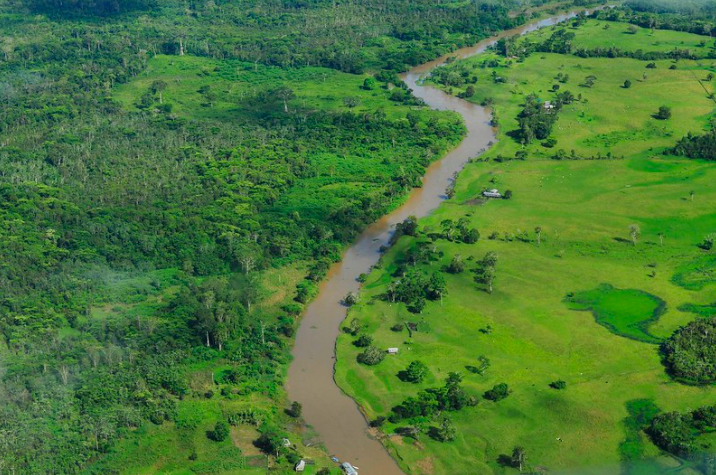Rising Brazil: The Choices Of A New Global Power
What should we expect from a newly powerful Brazil? Does the country have the capacity and leadership to be a central actor in addressing critical global and regional problems?
In an interview with BBC's Business Daily, Lisa Viscidi, director of the Energy, Climate Change, and Extractive Industries Program, discussed President Biden's climate foreign policy, deforestation in the Amazon, and US-Brazil relations.
BBC: Rates of deforestation are up 34% on last year according to one Brazilian NGO. Yet now, the Brazilian government is asking for $1 billion a year to sort the problem out.
Viscidi: "I think that we have seen a big change in how environmental issues and deforestation are addressed in Brazil since President Bolsonaro took office. His attitude about climate change and his skepticism differ significantly from previous administrations. Before his tenure, there was never as much rhetoric around the need to develop the Amazon, and protecting the rainforest wasn't seen as an impediment to economic development.
It is costly to enforce conservation rules. It requires people from the environmental regulatory agency to go out in the field to see where deforestation is occurring and actively try to stop it. A big part of the problem has been that there are less resources and support. That's why even though deforestation has always occurred, it's gone up significantly. There isn't enough enforcement, even compared to what we saw before."
BBC: One of the things that is going to be discussed at this climate conference that President Biden is hosting is a proposal by the Brazilian government to receive $10 billion a year to help transition to a low-carbon economy. $1 billion of which, according to the environment minister, will go towards tackling deforestation. You've got to look at the deforestation figures in Brazil and wonder if there's an element of blackmail here. Loggers and farmers have destroyed the Amazon, caused huge levels of deforestation, and then the Brazilian government says, 'Well if you want us to sort it out, you're going to have to give us $1 billion a year.'
Viscidi: "I think the problem is that there is skepticism on both sides, on the side of the United States and the side of Brazil. The United States wants proof that Brazil is going to improve its protection of the Amazon, and Brazil wants proof that international actors are going to support Brazil's efforts rather than indirectly take control of the conservation process."
BBC: That problem of distrust between developing nations and the United States is a big problem, not just in Brazil, but in many other developing countries. One US president is really enthusiastic about cutting carbon, but the next president isn't. The Americans are not great long-term partners, are they?
Viscidi: "The response that I'm seeing from a lot of Latin American and Caribbean countries is a bit more short-term and opportunistic. I mean that in a very positive sense. These countries are saying 'we've got at least four years with an administration that is serious about climate change and we should take advantage of this.'"
BBC: That's quite an optimistic way to look at it, isn't it? If Biden is talking seriously about cutting carbon in America, he's also talking about delivering huge amounts of resources.
Viscidi: "Yes, I think a lot could be achieved in four years. We're already seeing the effects of climate change on these countries in terms of more severe hurricanes, droughts, and in Central America this is one of the drivers of migration to the United States. These countries are already facing the effects of climate change and in the immediate term there is a lot that the United States can do to help. I think it's a great opportunity."
[audio mp3="https://www.thedialogue.org/wp-content/uploads/2021/04/BusinessDaily-20210421-CanBidenWooTheWorldOnClimateChange-1.mp3"][/audio]
What should we expect from a newly powerful Brazil? Does the country have the capacity and leadership to be a central actor in addressing critical global and regional problems?
President Lula da Silva triumphantly announced that he and his Turkish counterpart had persuaded Iran to shift a major part of its uranium enrichment program overseas—an objective that had previously eluded the US and other world powers. Washington, however, was not applauding.
In the past year, the Bolivian government has emerged as an outspoken critic of climate change policies.
 CIAT / Flickr / CC BY-SA 2.0
CIAT / Flickr / CC BY-SA 2.0